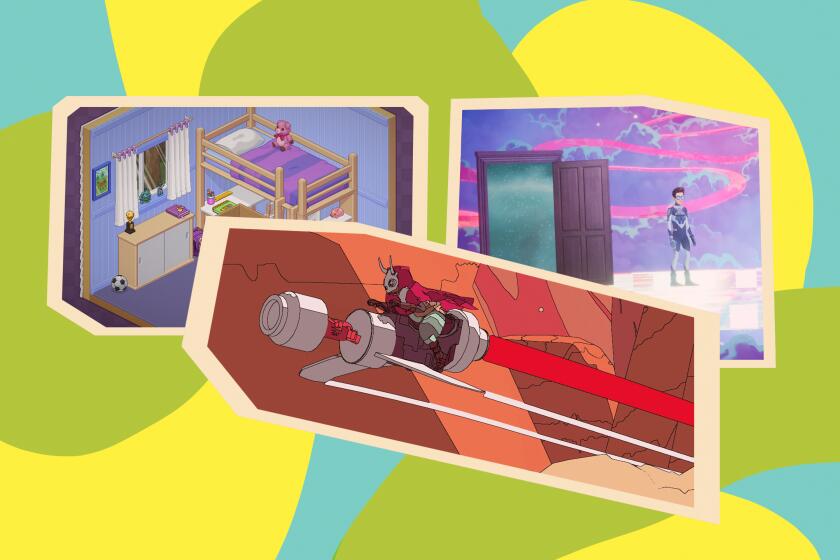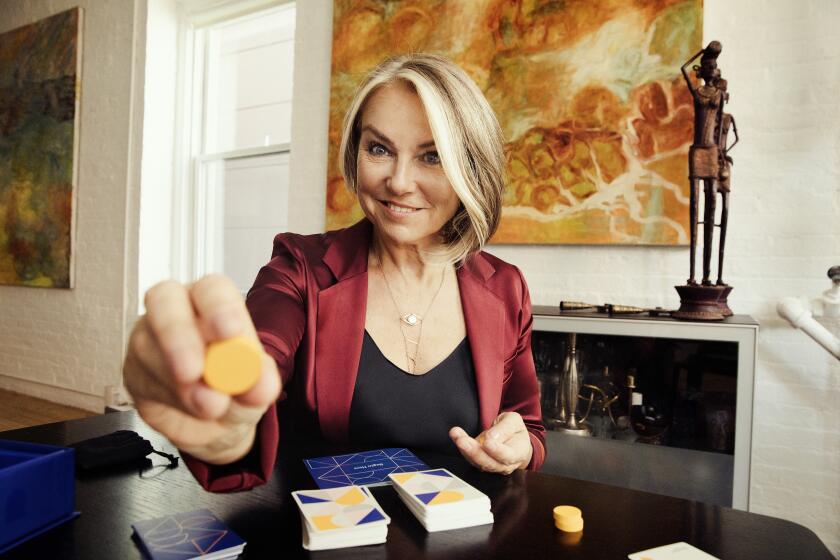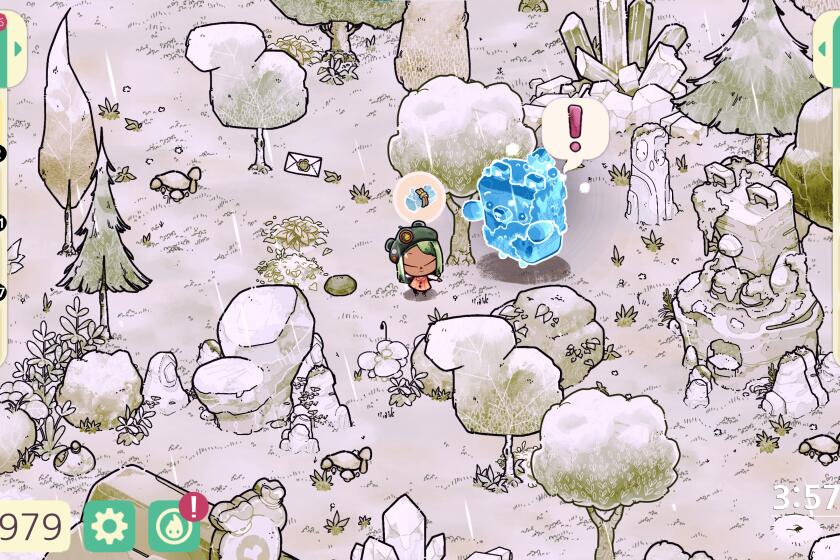In 2021, play became a way to think about life
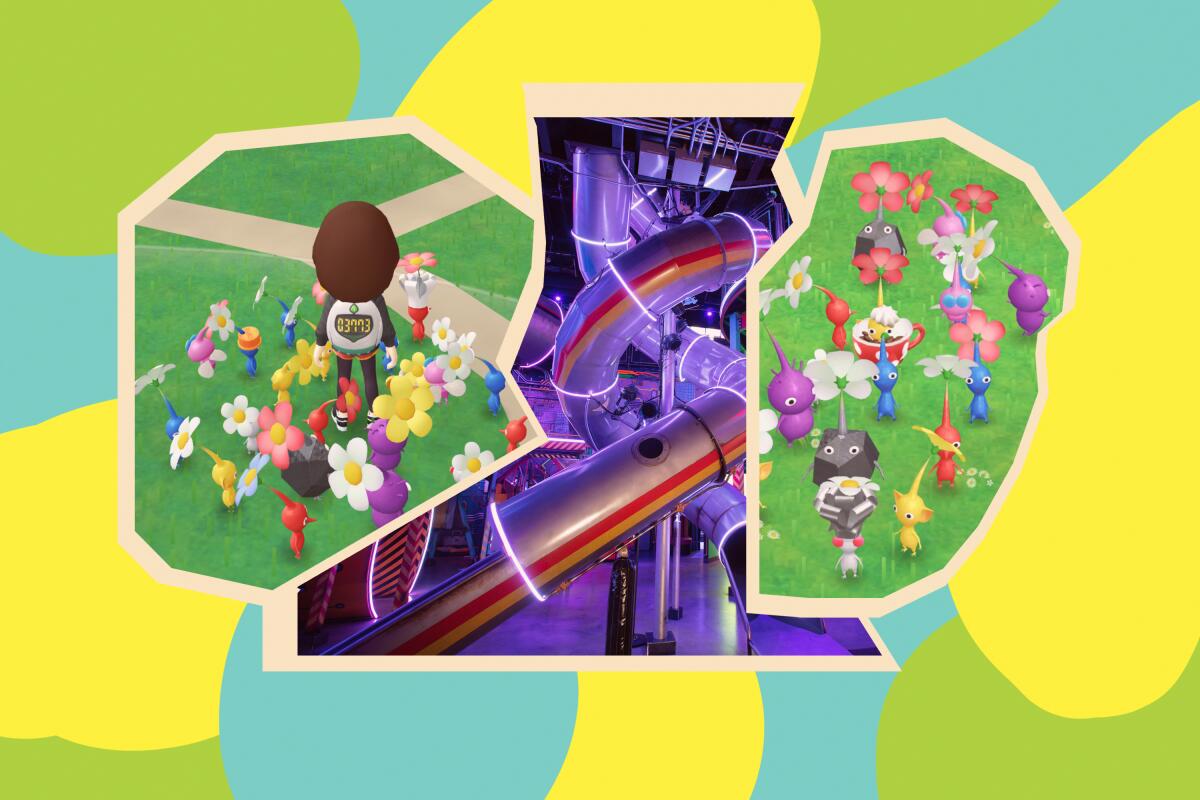
If 2020 was the year we bonded via play — stuck at home we strengthened friendships and relationships over our “Animal Crossing” islands or “Among Us” bouts — 2021 is the year that play began to feel like a way of life.
Games gave us an opportunity to not just communicate but shape how we approach our experiences. After two years of collective stress, loss and grief, not to mention a still-divisive political climate, I’ve come to think of play as crucial to simply getting through the day.
Everywhere we look there are — or can be — games.
What is a couch if not a vessel to build a fort? And what is the metaverse if not the acknowledgment that our lives are increasingly online and entertainment is more participatory than ever?
‘Sable,’ ‘The Artful Escape,’ ‘Unpacking’ and more of 2021’s best games asked questions about our place in the world and how we define our lives.
If there’s a defining medium of our still-uncertain pandemic age, it’s games. Not simply because the PlayStation 5 and Xbox Series X are still hard to find or the tech universe has made the concept of a metaverse — a game-like escape into a digital reality — mainstream. A deeper understanding of play can lead to new experiences, and there were great ones to be had in 2021 both on screen and beyond it.
The music-centered game “The Artful Escape” was the quest for an identity. “Unpacking” asked us to look at the objects that surround us. “Psychonauts 2” delivered complex messages of mental health via outlandish animated canvases. And “Genesis Noir” challenged us to think about what we want in a relationship.
In the so-called real world, “Pikmin Bloom” turned the scenery outside our doors into a magical flower-like wonderland and Meow Wolf’s Omega Mart installation in Las Vegas transformed the grocery store into an interstellar trip to other dimensions.

Even famed psychotherapist Esther Perel preached the power of play via a conversation-based card game. Play, increasingly, is a way to look at the world around us. For play is to ask what if instead of how come.
“Your mind is limitless,” Perel said in an interview earlier this year. “When we talk about play, we have to talk performance. We also talk imagination. We also talk risk-taking. We can talk about real things, outside the limits of software. An entire worldview can be described by understanding the meaning of play.”

There’s magic that happens when we interact with a work of art, and not just because we lean in and take an active part. As much as games are spoken of as a type of immersive art, allowing us to inhabit another role, I’ve long found that description simplistic and not quite right when describing the power of play. We’re more like puppeteers, orchestrating characters or role-playing different versions of ourselves.
An interview with Esther Perel — the psychotherapist behind the popular podcast “Where Should We Begin?” and now a game developer — turns into a therapy session.
For we are never not aware we are playing. When we wander the intergalactic installations of Meow Wolf and discover outlandish tales about the power of self amid a demented capitalistic world, we still know we are in Las Vegas. When we role-play “Star Wars” characters in Disneyland’s Galaxy’s Edge, we still know we are in a theme park.
But that space between us and the text creates a new, malleable perspective. When we are not passive viewers, our own instincts and habits come up for greater scrutiny. A focus is suddenly placed on how we typically act — our habitual impulses are up for review when we play. When we play with others, this instantly creates comfort; think of it as silliness opening a safe space for emotional intimacy.
And after 22 months of near-constant upheaval and more solitude than most of us desired, what can be better than experiences that foster conversations, either with ourselves or those we’re close to?
This is what I was hungry for in the games that I played.
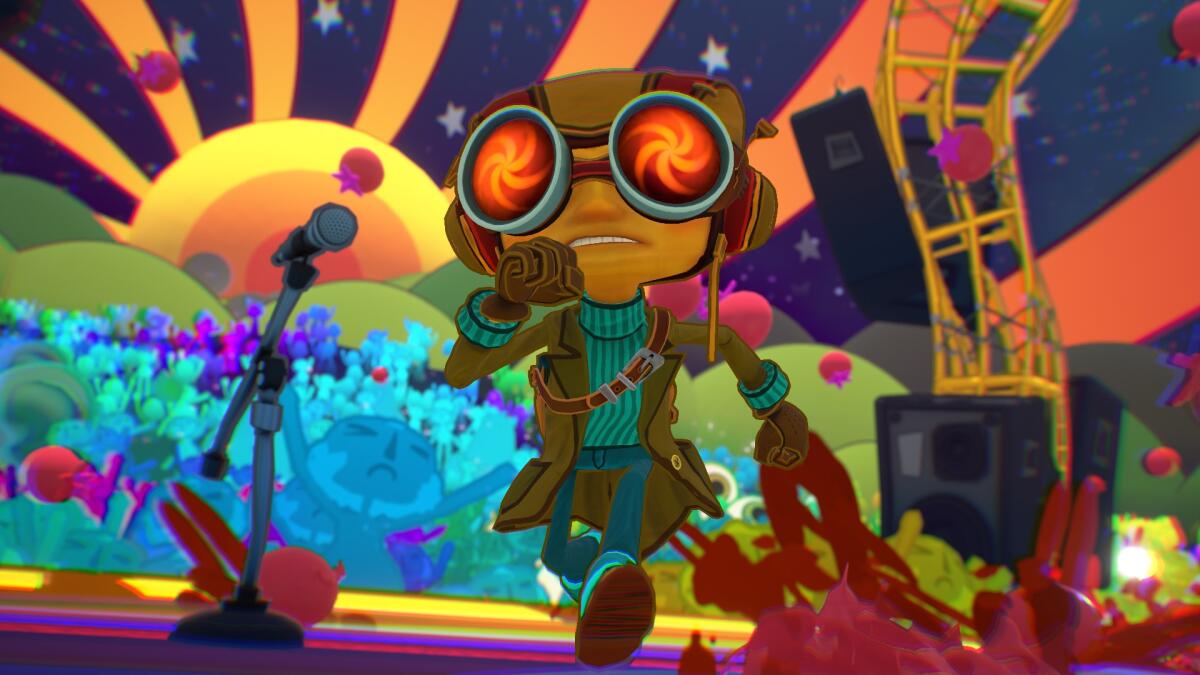
I found “The Artful Escape” moving for its emotional challenges rather than its rhythmic ones, which were mostly straightforward. The music game is about creating a new persona, breaking out of our shells and learning to not let our desires be colored by the expectations of others. As we wander on glowing white bridges among planets, encounter talking cats and pounce on neon-lit padded rocks, “The Artful Escape” challenges us to “play as if your dreams were now memories.”
Only animation allows for such colorful, metaphorical worlds, and “Psychonauts 2” was the best animated film I played this year. A head trip, literally, into the minds of others, the game presents larger-than-life twists on real-world places, where casinos, campgrounds, concerts and others become wild, multifaceted levels where trees are skyscrapers and betting games are topsy-turvy universes. And yet it’s a serious game about mental health, tackling topics such as addiction, depression-based fears and insecurities with a never-ending zest for life.
As we ricochet through minds, we’re disconnecting bad habits to create news ways to solve problems. The game understands change occurs not from rewiring our brains but from simply having alternate responses to our thoughts. This isn’t told to us; it’s what we actually help people do in the game.
“I’ve always felt like certain thought patterns are muscles,” says Double Fine Presents founder and “Psychonauts” creator Tim Schafer. “They get stronger if you keep doing them. There are habits you can train yourself to do. Not everybody. When some people are suffering depression they’re not in control of their happiness, but other people are able to frame their own realities and take control of those things. That’s a really big topic.”
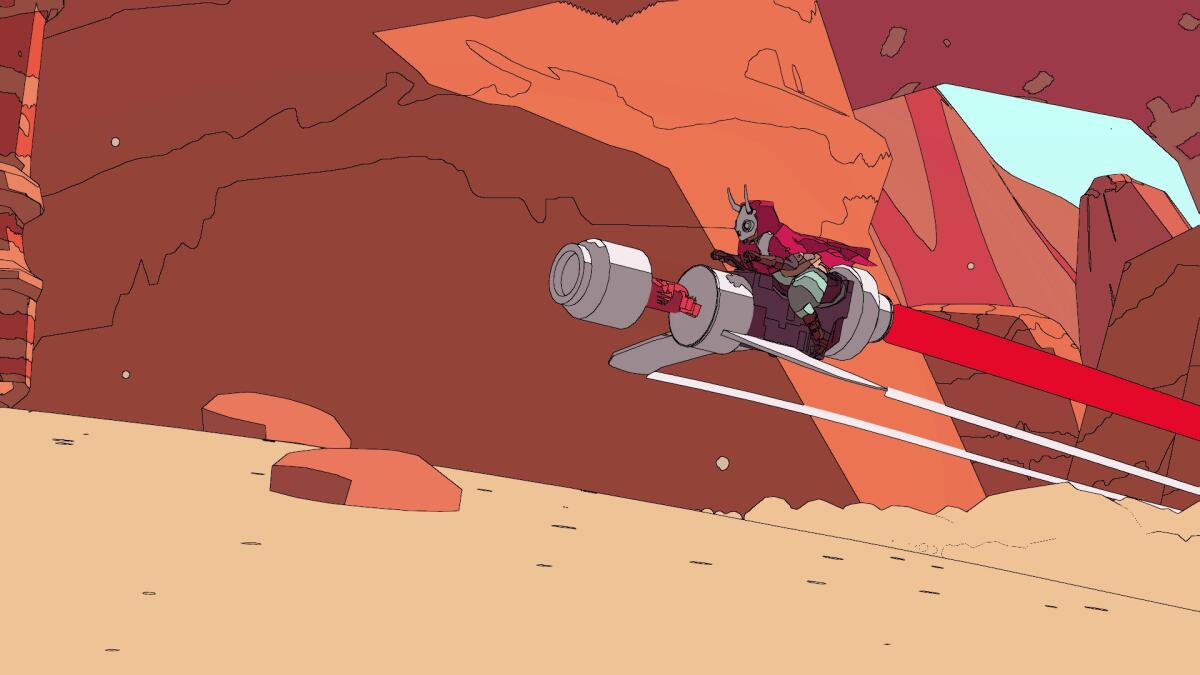
“Psychonauts 2” and other games I loved also attempted to get deep on life. There’s the quest for vocation in “Sable,” for instance, and burning poetry about domestic abuse in “Last Call.” I even found “Pikmin Bloom” — a game most wrote off as too simple — to be a work that asked us to rethink how we view the world around us, as every step we take can leave a digital flower in our wake.
Play isn’t about challenge; play is simply a change in our everyday experience.
This isn’t a new concept; it has been around far longer than since games went digital. Our modern era, however, has simply framed games as something frivolous. Part of that is the fault of the video game industry, which for too long emphasized juvenilia or shooting things rather than serious topics, but that period is over; today we understand that play is a medium with not just financial might but emotional weight.
“I’m really fascinated with the sense that you’re not just one monolithic person,” Schafer says of his motivations behind “Psychonauts 2.” “Sometimes it feels like a different part of you has your hand on the wheel in a different part of your life. We are a collection. Any one person is a collection of psyches and they collaborate to make this personality we put forward.”
Play is a way to put those different psyches in the driver’s seat. It can happen in a digital sphere, or it can happen in our own homes. Try to view, for instance, your furniture from the eye level of a pet. Maybe draw what they see. What mountainous and cavernous landscapes that live among us do we take for granted?
In our stressful times, seeing the world with wonder is always easier said than done, but it’s helpful to remember the places we can go when we’re in a playful state. Games like “Psychonauts 2” and “The Artful Escape” are fun, yes, but more importantly they’re tools, provocations to look at ourselves and our universe differently.
It turns out games are uniquely tailored to explore love, romance and heartbreak. Consider “Maquette,” “Genesis Noir” and “Journey of the Broken Circle,” interactive conversations that ask players to think about love.
The charming and therapeutic “Cozy Grove,” inspired by “Animal Crossing,” is just one recent release in the “wholesome games” movement. Why the games resonate.
The space opera fantasy returns in ‘Halo Infinite’ with Master Chief, a grappling hook, cheesy dialogue and a gorgeous vast world that’s pulpy and timeless.
More to Read
The biggest entertainment stories
Get our big stories about Hollywood, film, television, music, arts, culture and more right in your inbox as soon as they publish.
You may occasionally receive promotional content from the Los Angeles Times.
